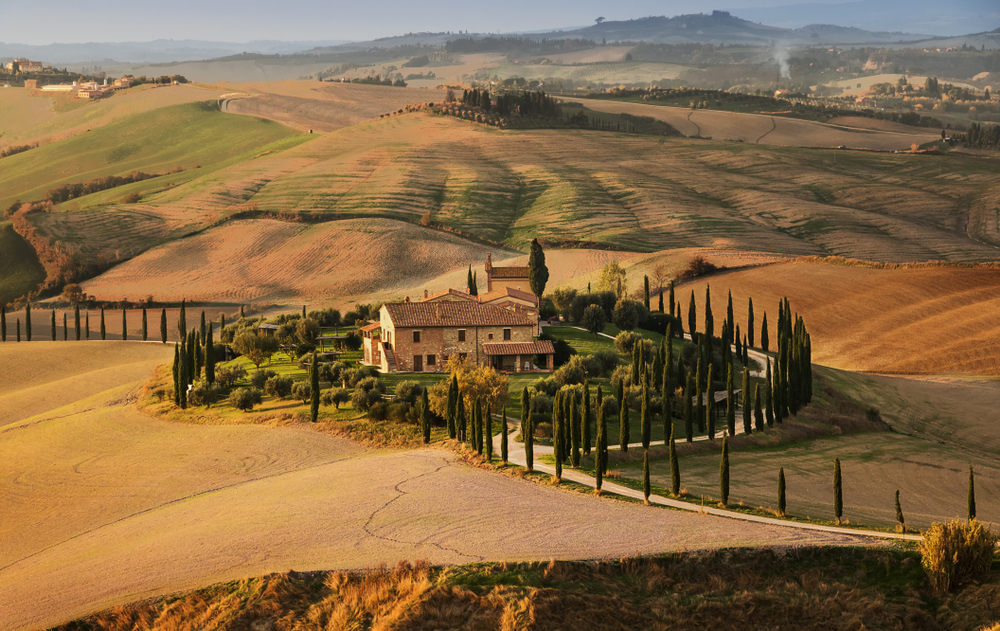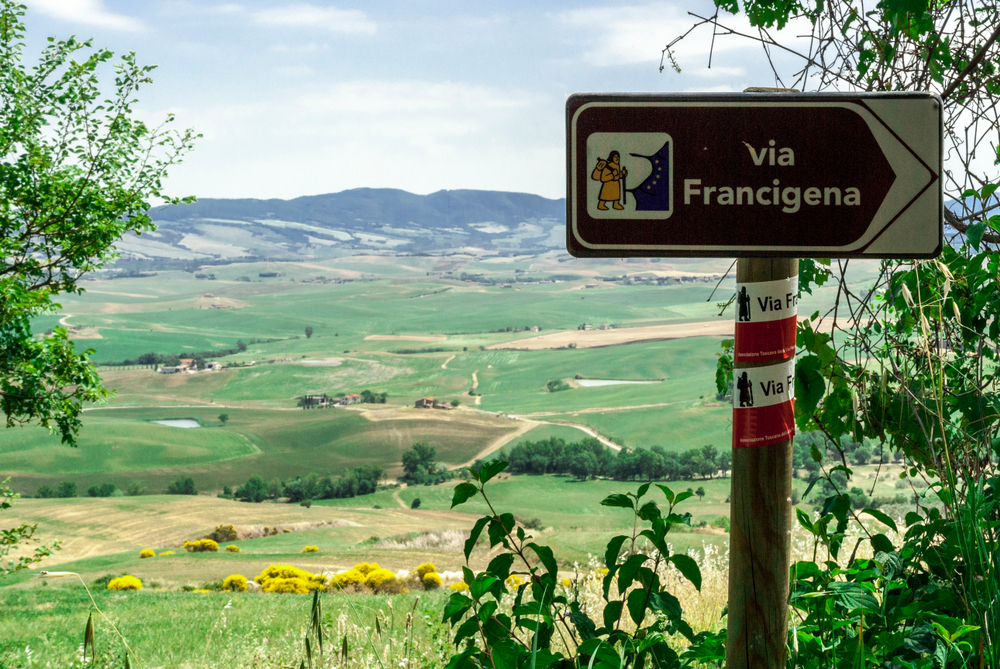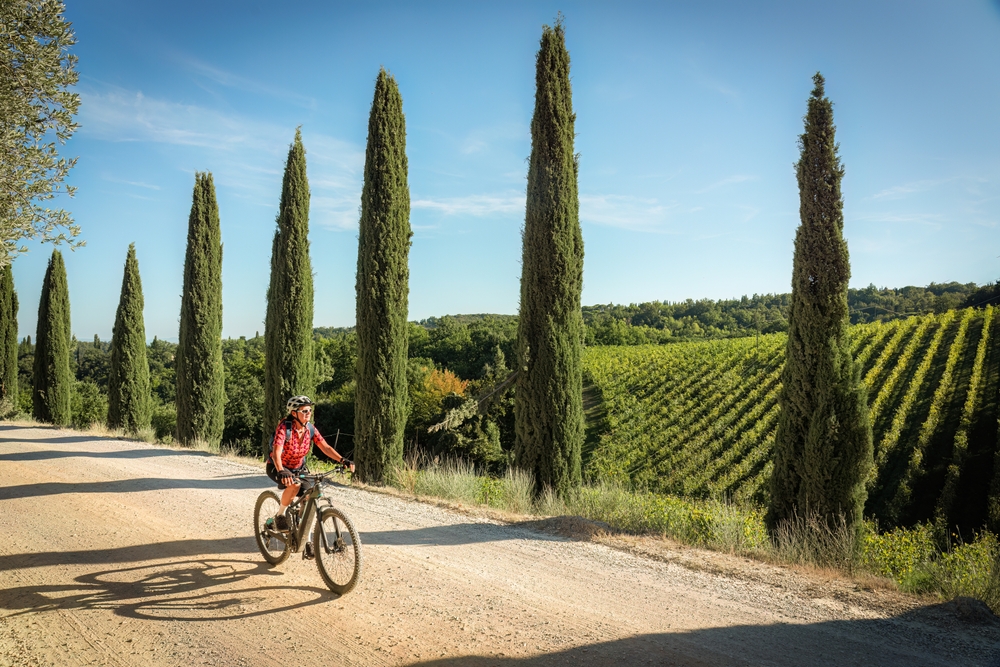Curiosità. Lo sapevi che…??? Did you know…???
The cypress tree (il cipresso) is one of the major Tuscan symbols. Did you know that it actually comes from far away? It seems that these trees (Cipresso), from Latin “Cupressus sempervirens”, were introduced in Tuscany by the Etruscans (Etruschi).The origins of this fascinating population remains as an object of debate. The tree appears to have come from “Anatolia” that is nowadays part of Turkey.
Gli Etruschi
Etruscans, great travelers and sailors, came to this part of Italy (at that time called Etruria) through the sea. They eventually settled in the areas currently corresponding to Tuscany, West Umbria, and Northern Lazio. It is interesting to know how, still today, it is indeed in Tuscany (Toscana) and Umbria that we find the biggest number of cypresses.
Symbol of Spirituality
Over the centuries this tree has been a symbol of spirituality. First for the Etruscans and then later, the Romans, it was considered a connection between Earth and Sky — earthly life and spirituality. That’s why we find lean, tall cypresses in every cemetery as if to reach for the sky.
Etruscans were the first to plant this tree near tombs, followed then by the Romans and the tradition continued up to our days. Later, the cypress also became a symbol of fertility.

Noble Families and Tuscan Villas
In the Middle Ages (Medioevo), rich families, used to plant a cypress for each newborn daughter as a fertility lucky charm. The tradition was followed by cutting down the tree at the wedding. The cypress wood was then used to build elegant wooden chests (bauli di legno) to store the wedding trousseau (il corredo di matrimonio).
It is also interesting to note that this type of wood has strong insect repelling properties, therefore making it the perfect material to store lingerie and household linen.
From the Middle Ages (Medioevo), through to the Renaissance (Rinascimento), up to XVIII century, it is perhaps from these ancient traditions, the custom of designing long elegant cypress alleys, which, in 1700-1800, characterized all the main noble Tuscan villas we all know.
Via Francigena

Let’s now take a step back to the 7th century , the time of the Francigena Road (Via Francigena). Its history dates back to the Early Middle Ages. The road is an ancient pilgrimage route that connected northern Europe, Canterbury, to Rome, then continues towards Apulia (Puglia). Here is where pilgrims and crusaders would embark for the Holy Land.
Road Signs
Here’s the last curious fact about “our” Cypress tree. At the time of the Via Francigena, Cypress trees were used as ‘road signs’ (segnali stradali) for pilgrims (I pellegrini) coming from northern Europe?
Well visible from afar, the number of Cypress tree indicated, for example:
Un (one) Cipresso indicated “a rest area”(area di riposo);
Due (two) Cipressi a “restaurant” (un’osteria) at that time; and
Tre (three) Cipressi an “hostel” (un ostello).

Next time you come to Tuscany , look closely at the landscape. From now on, the tall cypress trees will no longer be a secret!
Practice Italian Vocabulary List, from Chiara’s Tuscany
- Did you know? | Lo sapevi che?
- Cypress tree | il Cipresso
- Etruscans | Etruschi
- Tuscany | Toscana
- Middle Ages | Medioevo
- Wooden chest made from cypress wood | bauli di legno
- Wedding trousseau | il corredo di matrimonio
- Renaissance | Rinascimento
- Francigena Road | Via Francigena
- Apulia | Puglia
- Road signs | segnali stradali
- Pilgrims | i pellegrini
- Rest area | area di riposo
- Restaurant | un’osteria
- Hotels | un ostello
- Cypress (sing. & plu.) | un cipresso; due cipressi



